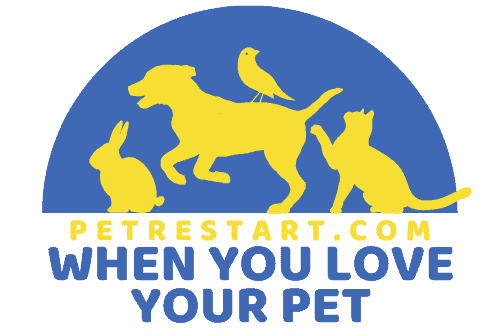Melons are a common fruit that’s juicy and sweet that many people love. Besides its sweet taste, it also has a good source of vitamin C that boosts the human immune system and has many other traits that can benefit your pet bird. Melons, including cantaloupe, watermelon, and honeydew melon, are rich in fiber and good for your bird’s digestive tract.
As you can see from the photo above, parrots can eat melons but on a balanced diet.
Like humans, parrots and other birds also need the nutrients found in melons to maintain a good and healthy system, making melons suitable for parrots. Besides the nutritional benefits of melons to parrots, it is also readily available in most fruit markets worldwide. You can quickly grow melons in your backyards when you have parrots as pets, so you don’t have to spend extra for your parrot’s fruit diet.
Nutritional Benefits Of Melons To Parrots
Most fruits that are good for human consumption are nutritious for birds. Melons are rich in fiber, amino acids, vitamin C, choline, vitamin A, potassium, magnesium, and iron. Melons have high water content. In cases where your bird pet does not drink water that much, melons would greatly help your parrot rehydrate.
How Do These Nutritional Contents Help Parrots?
Fiber: They can help in the digestive tract functioning of parrots. Fiber can help parrots digest food for a healthy stomach and prevent indigestion.
Amino acids: They are for good muscle movements. Birds such as pet parrots need good muscle movement since they fly around in their cages. Good muscle movement [prevents them from having cramps.
Vitamin C: It boosts the parrot’s immune system. Like humans, birds also need vitamin C. Vitamins C is essential for the body to boost the immune system to fight against foreign materials.
Choline: It aids in muscle coordination and movement and maintains cellular structure memory.
Vitamin A: It helps maintain good feathers. Of course, a pet owner loves to see their pet glowing beautifully with colorful feathers. Having good feathers means your parrot is healthy.
Potassium: It improves heart health. It also plays a role in heart health and muscle coordination.
Magnesium: It aids in developing healthy feathers and the development of bones and brain neurons. It also plays a role in heart health and muscle coordination.
Iron: Iron is essential in the production of hemoglobin, which helps to carry oxygen through the blood; however, too much iron may cause iron disease disorder. (source)
Can Parrots Eat The Rind Of Melons?
Wax usually coats the rinds, which is necessary to preserve the fruit. Aside from this waxy coating, commercial melons, especially watermelons, are often sprayed with pesticides. It’s still possible to feed the rind to your parrot if you: Rinse it thoroughly with water to ensure that all traces of wax or pesticides go away.
Scrape off a couple of layers and feed the rest to your bird. Alternatively, you could get melons from an organic farm since organic farmers do not use pesticides. (source)
Can I Feed Melon Seeds To Parrots?
Parrots can eat melon seeds. Melon seeds are full of nutrients, minerals, and protein. If your parrot likes seeds, serve them separately. Prepare them properly. Better yet, chop them into small bits. Soak the seeds overnight to make them easier to eat. (source)
Can Melons Be The Complete Diet For Parrots?
Parrots should eat at least twice a day. The amount of food that your parrot needs will depend on its species:
A much larger specie will need 1 ½ cups of fruit and vegetables a day. Smaller species will only need a ¾ cup of fruit and vegetables. Melon is safe for parrots to eat., but only as part of a balanced diet. No matter how healthy melon is, it’s still not enough if your parrot isn’t consuming other essential food. (source)
Fruits, nuts, and seeds should comprise only 20% of a pet parrot’s diet. It is because captive parrots use less energy than wild parrots, which means that they need less sugar and fat in their diets to keep them healthy.
Are There Any Dangers In Feeding Your Parrots With Melons?
No danger comes along with feeding your parrots with melon – only benefits.
However, there are some measures in feeding them with melons;
- When feeding rind to your parrots, peel off the outer layer when you aren’t sure if the melon is not organically grown or wash it otherwise to remove the dirt and microbes.
- To prevent choking hazards, cut the rind into small bits for easy chewing.
- Feed your parrots with a balanced diet. Anything less or more is not good.
- Some nutrients within the watermelon, like iron, need to be carefully balanced in your bird’s diet. Too much iron can lead to iron storage disease, while too little iron can lead to anemia or iron deficiency.
- If your parrot has not eaten the watermelon within 2 hours, put it in the garbage. After two hours, bacteria can build up and cause your parrot to become sick or ill. (source)
Do I Have To Remove The Seeds When Feeding My Parrots With Melon?
As previously mentioned, melon seeds are edible to parrots. Melon seeds will not harm your parrot pet in any way but may cause smaller species of parrots to choke. There are also different varieties of melons with varying sizes of seeds which may also cause your parrots to likely choke if fed with big grains.
To be safe, check the dimensions of the grains of the lemon when buying melons; since there are many varieties of melons, smaller ones would probably have tiny seeds. If you think the size of the seed won’t choke your parrot, then you can say it is safe but still watch over your parrots when being fed with any grains.
- The Spruce Pets https://www.thesprucepets.com/vitamin-rich-foods-for-pet-birds-390626
- Parrot Website https://www.parrotwebsite.com/can-parrots-eat-watermelon/#:~:text=and%20vegetable%20products.-,Can%20Parrots%20eat%20the%20Watermelon%20Seed%3F,with%20their%20own%20health%20benefits.
- Carrie Stephens – All about parrots https://www.allaboutparrots.com/can-parrots-eat-watermelon/







